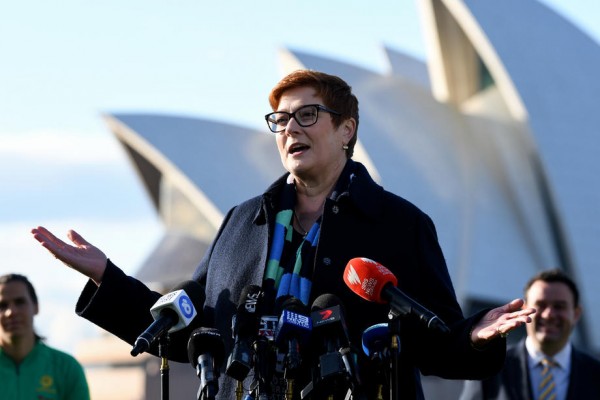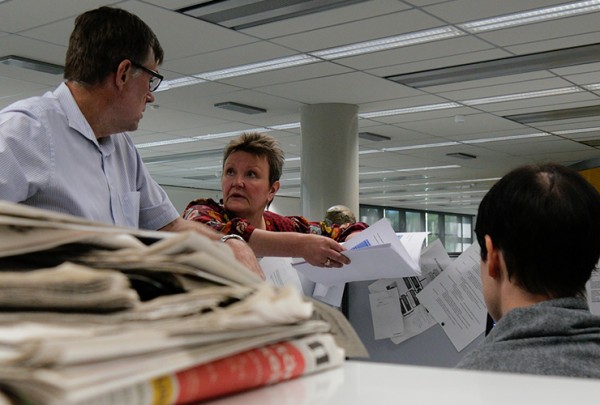The International Press Institute (IPI) today welcomed a recent move in Australia dropping proposed legal reforms that would have had serious consequences for press freedom in the country.
Following hefty criticism by local and international media and press freedom groups, Prime Minister Julia Gillard’s government on March 21 withdrew proposals that, among other provisions, would have introduced a form of statutory regulation of the media, which IPI sees as an undue interference in the independence of the press.
Minister for Broadband, Communications and the Digital Economy Stephen Conroy on March 12 announced the extensive reforms to laws regulating the media, allegedly in response to the recommendations made in two independent inquiries into the media carried out in 2012. The six proposed bills introduced a wide spectrum of changes including the creation of a media standards body, limits to media acquisition of national significance and a potential loss of the exemption status media organisations enjoy under the Privacy Act 1998.
Australian media outlets quickly reacted to the bills, condemning the proposed changes. On March 13, News Limited chief executive Kim Williams stated that the proposals would make the current government “the first Australian government outside of wartime to attack freedom of speech by seeking to introduce a regime which effectively institutes government sanctioned journalism”. On March 21, the minister’s initiative was shut down for good in Parliament and only two bills were eventually passed, which do not affect media freedom.
Conroy contended that his initiative was for the public good and that it was motivated by the News of the World scandal and by a political opposition leader’s criticism of The Australian, part of Rupert Murdoch’s News International Ltd, as “hate media”.
Critics, however, pointed out that, rather than improving on the existing self-regulatory mechanisms and promoting media freedom and plurality, the proposed media reforms would have established a de facto licensing system, which would have made the media highly susceptible to government pressure. Any media outlet operating outside of the proposed statutory media regulatory bodies would be subject to numerous restrictions, seriously affecting their operations.
At the same time, any substantial media acquisition would be subject to approval by the statutory body. Given the vagueness of the conditions for approval, the body itself would have enormous discretion.
“We welcome Parliament’s decision to stop the suggested reforms and therewith safeguard press freedom in Australia,” IPI Press Freedom Manager Barbara Trionfi said. “Any reforms of laws affecting the media need to be thoroughly discussed and take into consideration the input of important stakeholders in the country, including media outlets themselves. Furthermore, the wording of such laws needs to be specific and leave little room for interpretation.”
The origin of Conroy’s proposed media reforms can be traced back to a conference on climate change held by Greens leader Bob Brown on May 19, 2011. During a debate with members of the media, Brown called The Australian “hate media” accusing it of being biased and promoting low journalistic standards. Although Brown’s remarks attracted strong criticism from a number of media outlets, some observers contended that his statements were not entirely ill-founded.
Concerns regarding media quality rose again in July 2011 when Gillard said she was “truly disgusted” after reading about the involvement of Murdoch’s News of the World in phone-hacking practices in the United Kingdom. As a consequence of these events, in 2011 the government launched two independent media inquiries – one conducted by Raymond Finkelstein and the other by the Convergence Review Committee.
Authorities in Australia did not present any evidence or credible suggestions that phone-hacking had been committed by media representatives in the country. Furthermore, the proposed reforms did not entirely reflect the recommendations of the independent inquiries. Critics of Conroy’s initiative stated that it was a politically-motivated attempt to stop criticism of the ruling Australian Labor Party by some media outlets.
Conroy’s proposed reforms consisted of six bills: The Broadcasting Legislation Amendment (Convergence Review and Other Measures) Bill 2013, Public Interest Media Advocate Bill 2013, the Broadcasting Legislation Amendment (News Media Diversity) Bill 2013, the News Media (Self-regulation) (Consequential Amendments) Bill 2013, the News Media (Self-regulation) Bill 2013 and the Television Licence Fees Amendment Bill 2013.
Only the Broadcasting Legislation Amendment (Convergence Review and Other Measures) Bill 2013 and the Television Licence Fees Amendment Bill 2013 were eventually passed by Parliament. The former limits the number of free-to-air network licences to three, slightly increases the Australian content quota required for free-to-air television networks and extends coverage of the Charters of the Australian Broadcasting Corporation (ABC) and the Special Broadcasting Service (SBS) to include their own digital services. The latter reduces the licence fees of commercial television networks by up to 50 percent.
The reasons why the other four bills were rejected by members of Parliament lie in the bills’ controversial nature. While Conroy said he believed the measures would strengthen self-regulation, media diversity and freedom of expression, members of the media and other observers voiced concerns that the reforms would result in a de facto licensing system for media organisations by an allegedly-independent but statutory body, which would be contrary to the notion of the reforms.
The Public Interest Media Advocate (PIMA) Bill 2013 envisioned the creation of a new independent statutory office to be occupied by a single person. The PIMA would be selected for a period not exceeding five years by the minister for Broadband, Communications and the Digital Economy in consultation with such media industry bodies as the minister considered appropriate.
The Broadcasting Legislation Amendment (News Media Diversity) Bill 2013 would require the PIMA’s consent in advance for acquisitions of a “news media voice” – any media with audience exceeding 30 percent of the average metropolitan commercial television evening news audience – where a “controlling event” was present. The legislation defined such an event as a case where the acquisition was conducted by an existing owner of one or more news media voices or by a person who did not currently own any corporations of that type but was seeking to arrive in a position to exercise control over two or more news media voices. Consent was to be given by the PIMA only if the change of control would not result in a substantial lessening of diversity of control of news media voices or where a benefit to the public would outweigh detriment caused by lesser diversity of control. Many saw the dominant position of Murdoch’s News Limited in Australia as the main reason for the changes in media ownership laws. However, opponents expressed concern regarding the possibility of the PIMA becoming a “media tsar”.
Under the News Media (Self-regulation) Bill 2013, the PIMA could declare that an organisation was a “news media self-regulation body” provided the organisation imposed a self-regulatory scheme that was binding on its members. The proposed legislation left to the self-regulatory body the ability to define its own standards with regard to sanctions, breaches, complaints etc. In reviewing applications under that section, the PIMA was to consider the extent to which the body had arrangements in place to deal effectively with complaints and the extent to which its standards dealt with privacy, fairness and accuracy relating to the professional conduct of journalism. According to the bill, to be considered a “news media self-regulation body” an organisation also would need to adhere to “community standards”, but no definition of the term was provided, giving the PIMA wide discretion.
The News Media (Self-regulation) (Consequential Amendments) Bill 2013 defined sanctions for media outlets that were not subject to the regulatory framework of one of the PIMA-designated self-regulatory bodies. The bill stated that any media corporation that was not a member of a self-regulation body recognised by the PIMA would cease to enjoy an exemption for acts of journalism as set forth in section 7B(4) of the Privacy Act 1988. As a result, a media company that fell out with a recognised self-regulator, refused to join one or joined one that did meet fulfill the requirements found in News Media (Self-regulation) Bill 2013 would see its news operations crippled.


